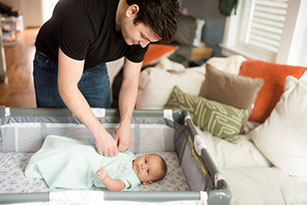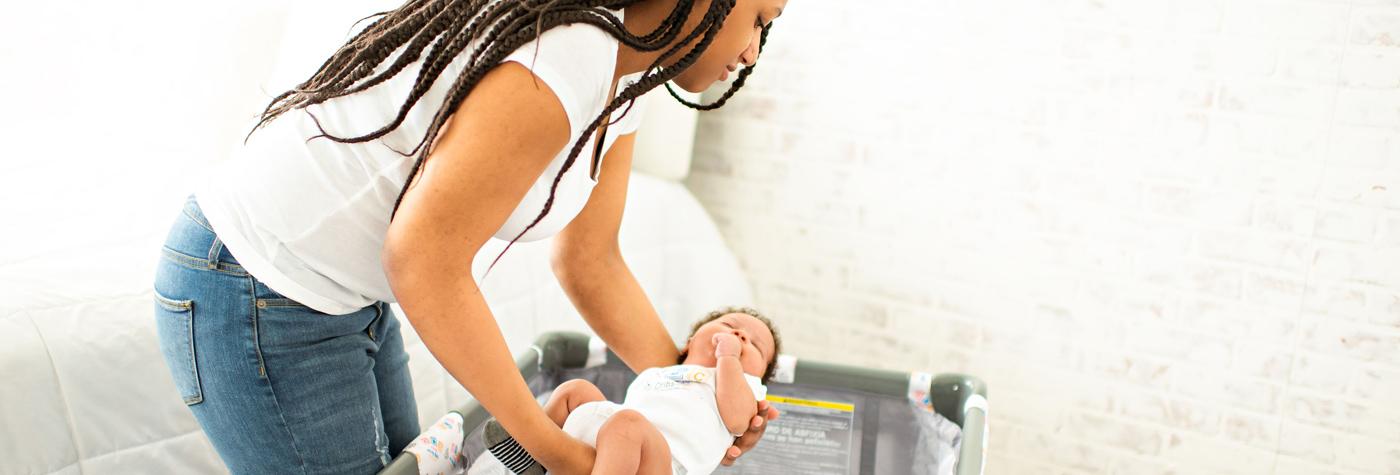Safe Sleep
Helping babies sleep safely is important for all of us at Kentucky Children's Hospital.
Kentucky has one of the highest rates of sudden unexpected infant death (SUID) in the nation. But at Kentucky Children’s Hospital, we're working hard to change that.
Our nurses are trained in how to teach families about sleep safety. Before parents and caregivers leave the hospital, they are encouraged to watch a video and talk with nurses about safe infant sleep and how to avoid SUID.
Tips for safe sleep
 Here are 10 tips to make sure your baby is sleeping safely, from our friends at Cribs for Kids:
Here are 10 tips to make sure your baby is sleeping safely, from our friends at Cribs for Kids:
1. Place your baby alone, on their back and in a crib. Make sure this is the case before your baby sleeps – every time.
2. Always use a firm, flat crib mattress. Cover it with a fitted sheet. The following are not safe for sleep: car seats, swings, wedges and devices that keep your baby from lying flat.
3. Check the crib for safety.
- Make sure that your crib has not been recalled.
- If there is missing hardware, do not use the crib.
- Do not try to fix any broken parts of a crib. Even if you fix it, many infant deaths are associated with cribs that have broken or missing parts.
4. Share your room, not your bed. It is dangerous to share a bed with your baby. It can lead to suffocation, strangulation and SUID. Studies show that bed-sharing is the most common cause of deaths in babies, especially those 3 months old and younger.
It is OK to share your room with your child. Just place the crib or bassinet near the bed.
5. Do not smoke near pregnant women or infants. Your home and car should both be smoke-free. Places where children and other nonsmokers spend time should be smoke-free.
6. Do not use bumper pads or other items that attach to crib slats. There is no proof that these prevent injury. But they may raise the risk of your child suffocating or getting trapped or strangled.
7. Don’t overheat or overdress your baby. Dress your baby in light sleep clothes. Keep the room at a comfortable temperature (from 68-72 degrees Fahrenheit).
8. Breastfeeding can reduce the risk of sleep-related death. If possible, try to breastfeed for the first six months.
9. Avoid devices that claim to reduce the risk of sudden infant death. These include wedges, positioners, and special mattresses or sleep surfaces. There is no proof that these work or are safe.
10. Before you travel, plan ahead. When you get ready to travel, be sure to take all you need to give your baby a separate, safe place to sleep. If you plan to stay in a hotel, make sure they have cribs you can use in your room.

